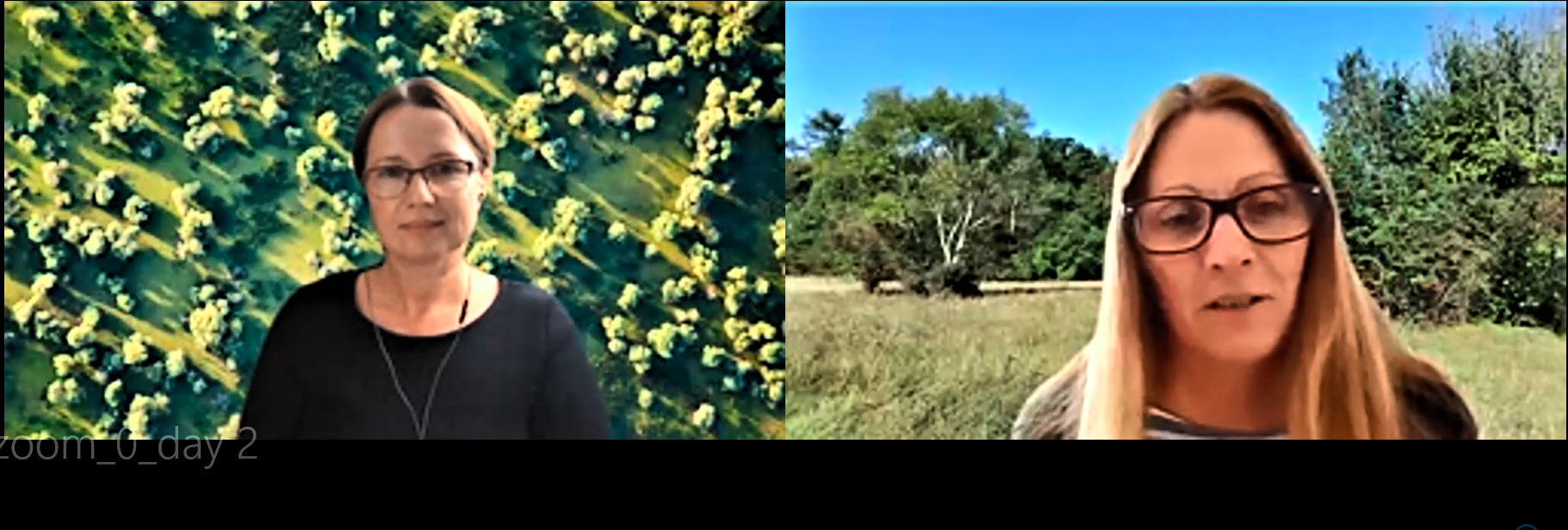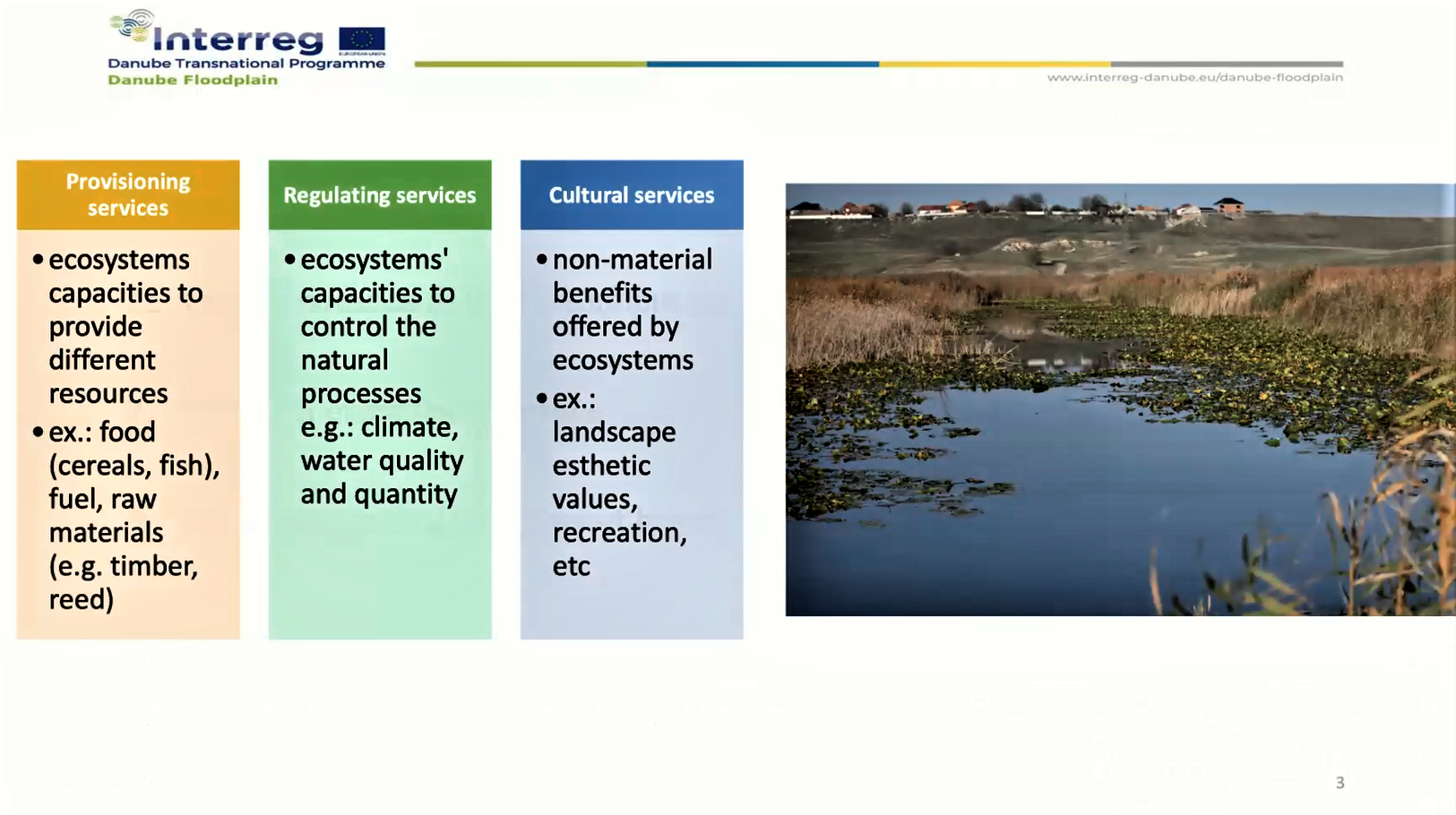Danube Floodplain - International Stakeholder Meeting (Bucharest, 22-23 September)
26-10-2021
Within the Danube Floodplain project two important meetings took place in September, the Experts Training Meeting in 21-22 September and the second International Stakeholder Meeting in 22-23 September. Due to the actual pandemic covid-19 event both meetings were held in an online format (only some Romanian representatives attended physically). The meetings were organized by the LP - National Administration Romanian Waters.
The second International Stakeholder workshop was attended mainly by the stakeholders from the Lower Danube countries and had as objective the consultation of the draft form of the Floodplain restoration, preservation action plan (the Roadmap).
The meeting was attended by 51 participants from 26 institutions (water authorities, NGOs, research field, engineering and education).
The Roadmap includes the agreed next steps towards realizing future floodplains restoration projects at Danube basin wide and national level and includes two parts: one is the action plan for implementation of the measures defined in the (pre-)feasibility studies of the pilot areas as results of the detailed multi-criteria analysis and the second, an action plan for elaboration of (pre-)feasibility studies of priority sites prioritized within the project.
In the second International Stakeholder workshop there were presented also other two important outcomes of the project, the Manual for floodplain preservation and restoration and the Strategic Guidance (the brief form of the Manual).

During the International stakeholder meeting some important issues emerged:
- Mr. Igor Liska from the ICPDR Secretariat underlined the necessity to integrate the Roadmap and other outcomes of the Danube Floodplain project results into the Danube Flood Risk Management Plan and the Danube River Basin Management Plan until the beginning of November 2021, both plans would be adopted officially in the beginning of December by the Head of Delegations;
- beside active floodplain restoration, how the second roadmaps of the potential restoration sites could be synchronized somehow with the river basin management plans and the flood risk management plans;
- now we will have the roadmap, will have different actions in placing implementing during the next years, it is also the suggestion to include something that the monitoring of this result from that activities could be embedded in the next actions. So after for example five years to know what was happening with those actions, and how should we proceed further with those actions, if there is other blockages, risks and so on for each project, because these type of projects are not very easy to implement and are coming with high risk from different levels, legal, land ownership, and so on. These type of activities probably will be useful to monitor the implementation and to adjust them during the next period of time;
- the financial aspects are very important for implementing the restoration projects (in some national recovery and resilience plans, there is some budget for the restoration measures, but it is called for these green measures to be localized in respective countries);
- in Hungary two stakeholder meetings in the Middle Tisza pilot area, will be organized by the WWF-HU and KÖTIVIZIG, one of them on 5th of October and another one in 14th of October. The results of these two meetings will be in a way integrated in the final draft material. The cost benefit analysis which was presented have been made by the Regional Centre for Energy Research of the Corvinus University of Budapest and KÖTIVIZIG,

This second stakeholder meeting contributed to the development of a network of stakeholders that are interested in the topics of floodplain restoration through an integrative flood risk management with habitats restoration and nature-based solutions. The cooperation among stakeholders and converged interests are essential for a successful floodplain restoration projects in the future.
